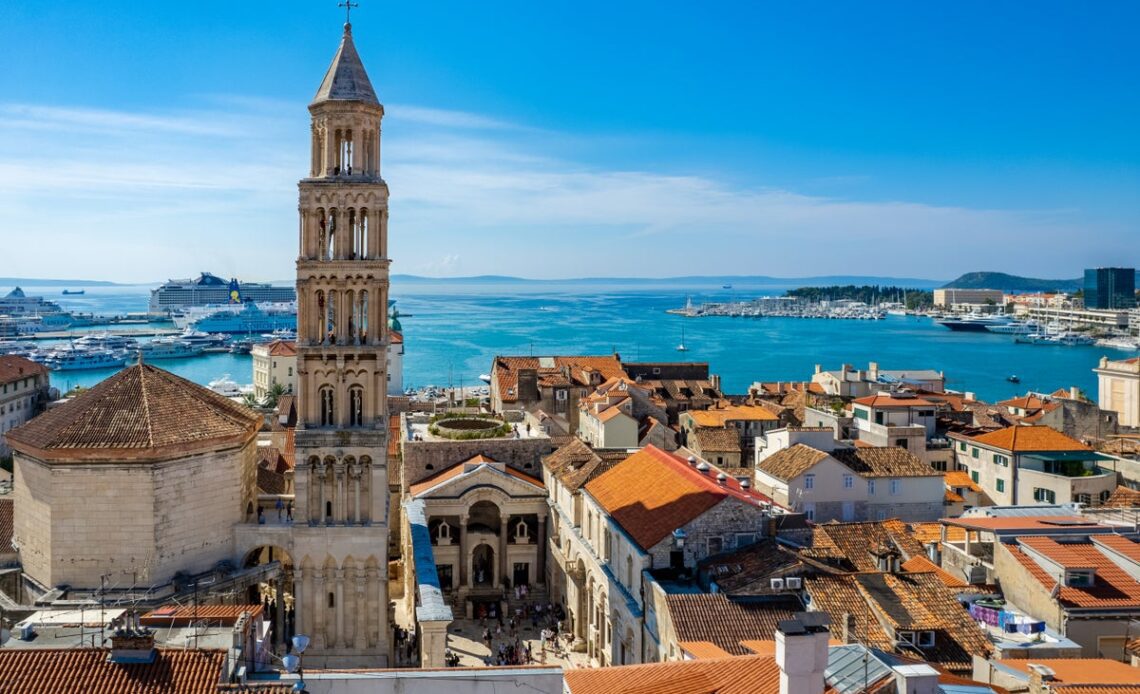Of all the Croatian words you might hear on a visit to Split, keep an ear out for this one: ‘gušt’ (pronounced ‘goosht’). A watchword for a way of life, in the same way the Danes have their ‘hygge’, gušt translates to ‘pleasure and enjoyment’. And you’ll find plenty of both in this charming, historic city, which sits on the eastern shores of the Adriatic, and has undergone centuries of transformation, thanks to its succession of rulers. Under the Greeks, then the Romans, the Venetians, the Byzantines, the French, and the Austro-Hungarians, Split has soaked up dozens of different architectural styles and cultural influences. But it remains, today, a jewel of a place, where you can wander around edifices which are over 1,700 years old, learn more about its fascinating past – and present – in museums and galleries, get a taste of the delicious local gastronomy, and sunbathe on beautiful beaches.
Immerse yourself in Split’s fascinating past at UNESCO heritage site Diocletian’s Palace
(Visit Split / L33T Digital Agency)
Split’s showstopper is Diocletian’s Palace: an elaborate structure made from lustrous white stone which stretches along the waterfront, it was built for the former Roman emperor Diocletian in 4AD. Small wonder, then, that the people of Split see their hometown as the centre of the world; if someone as powerful as Diocletian, who ruled across the Roman empire, chose as the place to have his retirement ‘home’, then Split really must be special. Residents aren’t the only ones to think so – the well-preserved palace, from where this magnificent city evolved, and Split’s historic centre, were awarded UNESCO heritage status in 1979. Within the palace complex, as well as must-see sights such as the dazzling Treasury of the Cathedral of Saint Domnius, its medieval Bell Tower, and the ancient Temple of Jupiter, you’ll also find people going about their daily lives – here, old worlds and new exist side by side.
Embark on an al fresco foodventure along Split’s palm-lined Riva promenade
(Visit Split / L33T Digital Agency)
Join them, browsing the freshest produce at the open-air fruit and vegetable market, or get inspiration for lunch and dinner at the covered fish market – look out for local dishes such as octopus peka (slow-cooked over embers in a clay or iron pot), mussels alla buzzara (a stew with olive oil, garlic and white wine) or crni rižoto (black risotto, with squid or cuttlefish and its ink) on…
Click Here to Read the Full Original Article at The Independent Travel…
